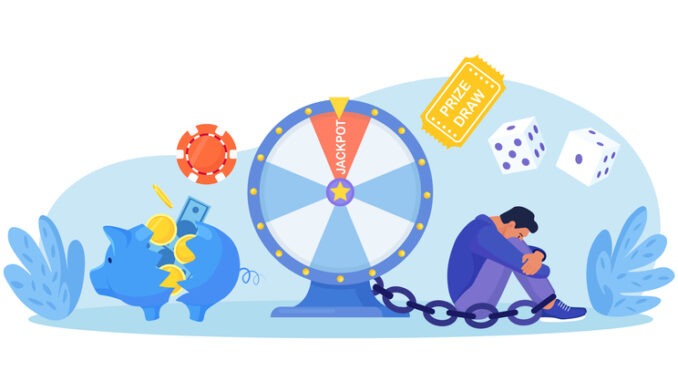
As problem gambling continues to rise in the UK, it poses significant challenges for both individuals and organisations, affecting employees’ mental health and workplace performance
CREDIT: This is an edited version of an article that originally appeared on The HR Director
Problem gambling is rapidly escalating in the UK, driven by a combination of societal, technological and behavioural factors. The COVID-19 pandemic and its associated lockdowns forced people into prolonged isolation, stripping away the benefits of regular social interaction, which often acts as a protective factor against compulsive behaviours.
Many individuals turn to online activities, including gambling, as a means of distraction, entertainment, or coping with stress, anxiety and loneliness. For some, these activities can develop into addictive patterns, especially those experiencing financial stress or low moods.
Problem gambling is rapidly emerging as a critical challenge for organisations. Alongside the potential health and emotional wellbeing concerns, individuals struggling with gambling problems may face difficulties maintaining stable employment, leading to absenteeism or reduced workplace performance.
Knowing What to Look Out For
Employers should be alert to several potential signs of gambling addiction in the workplace. These can include erratic or unusually disruptive behaviour, such as frequent mood swings, increased anxiety, or withdrawal. Employees may also appear unusually tired or fatigued, possibly due to sleeplessness related to gambling.
Constant interaction with phones or other electronic devices, particularly during work hours, could be another red flag, as well as taking extended or frequent breaks away from their desk. Additionally, if an employee seems to be becoming secretive about their activities, this may signal an attempt to conceal gambling-related issues. Recognising these signs early on can help employers offer appropriate support and intervention.
How to Support Employees
Upskilling and training managers on problem gambling can be incredibly beneficial. Senior leaders and line managers should be equipped with a solid understanding of the nature of problem gambling, its warning signs and the appropriate way to approach an employee if they suspect the condition may be present. This knowledge enables managers to offer support in a sensitive and effective manner.
When addressing problem gambling in the workplace, it’s essential to have a clear policy in place that outlines the support available to employees. This ensures that everyone is aware of the resources they can access. However, it is equally important that any support offered is done so with sensitivity and confidentiality. Employees dealing with problem gambling should feel safe in coming forward, knowing that their concerns will be treated with discretion and respect.
Creating a company culture where employees feel empowered to discuss their health and well-being is essential, especially when it comes to issues like problem gambling. It’s important to recognise that problem gambling is not just a financial issue – it is a mental health condition that can have significant emotional and psychological impacts. This openness helps reduce the stigma surrounding gambling problems and encourages employees to seek help before the issue escalates.
By creating a supportive, open environment and providing targeted resources, employers can assist employees in managing problem gambling, helping them regain control and successfully navigate their recovery.


Be the first to comment